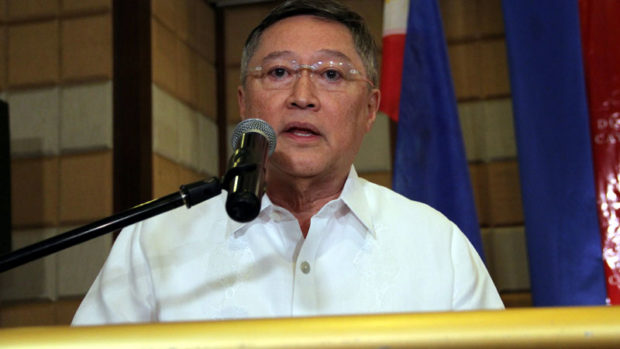The dark vaper: Dominguez wants to alter excise deal
The Department of Finance further wants to raise the rates slapped on e-cigarettes and vapor products to discourage smoking and generate more revenues to fund the Universal Health Care program.
Finance Secretary Carlos Dominguez III told reporters on Saturday the levies set to be imposed on e-cigarettes and vapor products were “too low.”
“The target is to make it equivalent to cigarettes,” Dominguez said, adding that this proposal would be contained in a new bill to be pitched during the 18th Congress.
“For vapes like Juul, we propose P45 per ml. For the typical 0.7-ml pod, it will be a discounted rate of P31.50. The approved bill only has P10. For heated tobacco, we propose P45 per pack similar to regular packs,” Dominguez said. “These rates are based on equivalency of volume or heated pack to regular pack of cigarette.”
Dominguez said a one-time increase in excise across all cigarette products would be “ideal.”
Article continues after this advertisementThe finance chief was optimistic the proposal to level excise rates across all cigarette products would be passed this year so that all adjustments take effect simultaneously in January next year.
Article continues after this advertisement“We also propose limiting availability of e-cigarette/vape juice flavors … There is strong evidence suggesting that many other flavors tend to encourage initiation and heavy use among the young,” according to Dominguez.
Before the close of the 17th Congress, legislators passed the bill levying an excise of P10 for every pack of e-cigarettes starting Jan. 1, 2020. There would be yearly hikes of 5 percent beginning 2021. E-cigarette sales are currently excise-free.
Last year, the Tax Reform for Acceleration and Inclusion Act twice raised excise imposed on regular tobacco products.
The higher taxes are expected to generate an additional P15 billion in revenues for the government and augment financing for the Universal Health Care program approved by President Duterte for implementation starting next year.
The government needs about P258 billion for universal health care in 2020, and “sin” taxes are among its main sources of funding.
